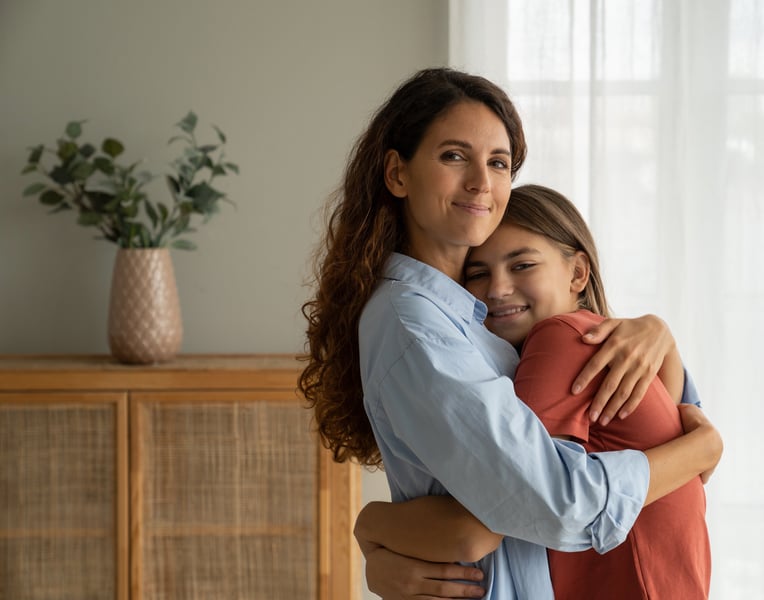Get Healthy!

- Denise Mann
- Posted April 13, 2023
Kids Born Via Egg Donors, Surrogacy Grow Up Just Fine, Study Finds
The kids, no matter how they are conceived, are all right.
That is the main takeaway from a new study by British researchers that found no real differences in the psychological well-being of kids who were born via sperm/egg donation or surrogacy and those born naturally by the time they reached the age of 20.
"Children born through third-party reproductive donation -- egg donation, sperm donation or surrogacy -- are well-adjusted and have positive relationships with their parents right up to adulthood," said study author Susan Golombok, former director of the Centre for Family Research at the University of Cambridge.
For the study, the researchers followed 65 families with children born via assisted reproduction from infancy until the child turned 20. Moms and kids were interviewed and filled out questionnaires about their relationships. Their answers were compared to those of 52 families of children conceived naturally during the same period.
The bottom line? "The absence of a biological [genetic or gestational] connection between children and their parents does not interfere with the development of positive relationships between them or the psychological well-being of the child,"Golombok said.
The new findings are consistent with previous assessments the researchers made at ages 1, 2, 3, 7, 10 and 14, she added.
Kids aren't all that fussed about how they were born, but it may be better to tell kids born via assisted reproduction technology about it when they are younger, the new study suggests.
Most of the parents who did share information about birth circumstances with their child did so by age 4, and kids took the news well.
"People are born in all different ways, and if I was born a little bit differently -- that's OK, I understand," said one participant.
A young adult born through sperm donation put it like this: "My dad's my dad, my mum's my mum, I've never really thought about how anything's different, so, it's hard to put, I don't really care."
Moms who began to tell their children about their biological origins in their preschool years had more positive relationships with their kids, and these moms showed lower levels of anxiety and depression, the study showed.
What's more, moms who told their children about their origins by the time the child turned 7 had slightly more positive scores on measures of the quality of family relations, feelings toward the young adult and family communication.
Just 7% of moms who had disclosed this information by age 7 reported problems in family relationships, compared with 22% of those who told their kids after they turned 7.
The same was true for their kids. Young adults told about their origins earlier scored higher on measures of their perception of their mother's feelings towards them, communication and psychological well-being. While 12.5% of kids told about their origins before age 7 reported problems on the family relationships questionnaire, a full 50% of young adults told about their birth at later ages reported such issues.
So, how do you broach the topic? There are books available to help parents talk to their children about their conception/birth. "We found that most parents in our study used these books and found them helpful,"Golombok said.
The study did note some nuances between the methods of assisted reproductive technology used. For example, moms who used an egg donor reported less positive relationships with their child than those who used a sperm donor. Exactly why this occurs is not known, but mothers could feel insecure about the absence of a genetic connection to their child. Their children did not feel the same about the quality of the relationship.
Young adults conceived by sperm donation did report poorer family communication than those conceived via egg donation, possibly due to greater secrecy around sperm donation than egg donation, the study authors noted.
The research was published in April 12 in the journal Developmental Psychology.
Dr. Alex Robles, a reproductive endocrinologist at Columbia University Fertility Center in New York City, said the new findings mirror what he has seen in his practice.
"These findings are in line with what we previously understood about these relationships and provide reassurance for people who might be hesitant about using third-party assistance to build their families,"Robles said.
More information
There's more on talking to kids about donor conception at Parents Via Egg Donation.
SOURCES: Susan Golombok, PhD, retired professor, family research, and former director, Centre for Family Research, University of Cambridge, U.K.; Alex Robles, MD, reproductive endocrinologist, Columbia University Fertility Center, New York City; Developmental Psychology, April 12, 2023





